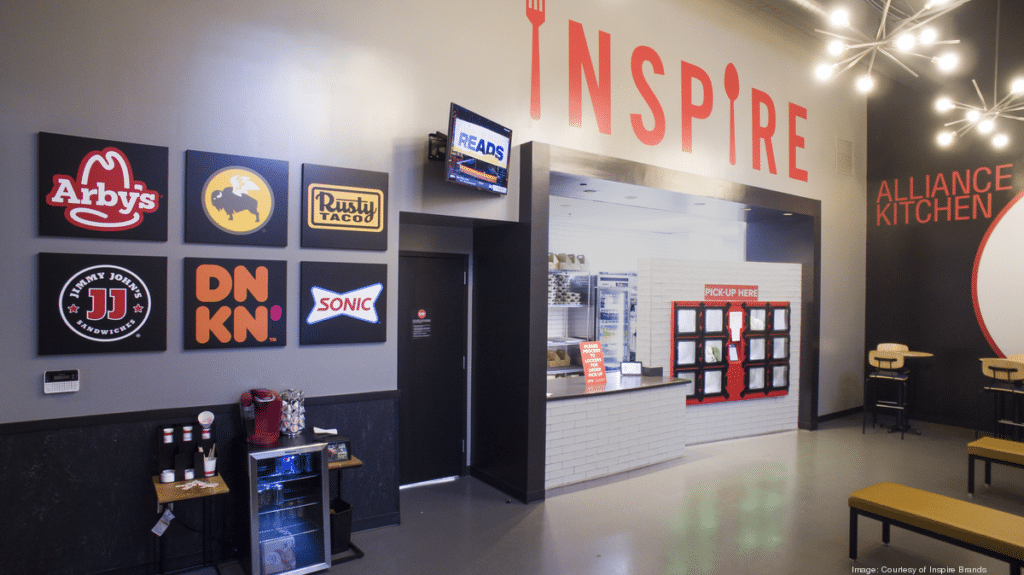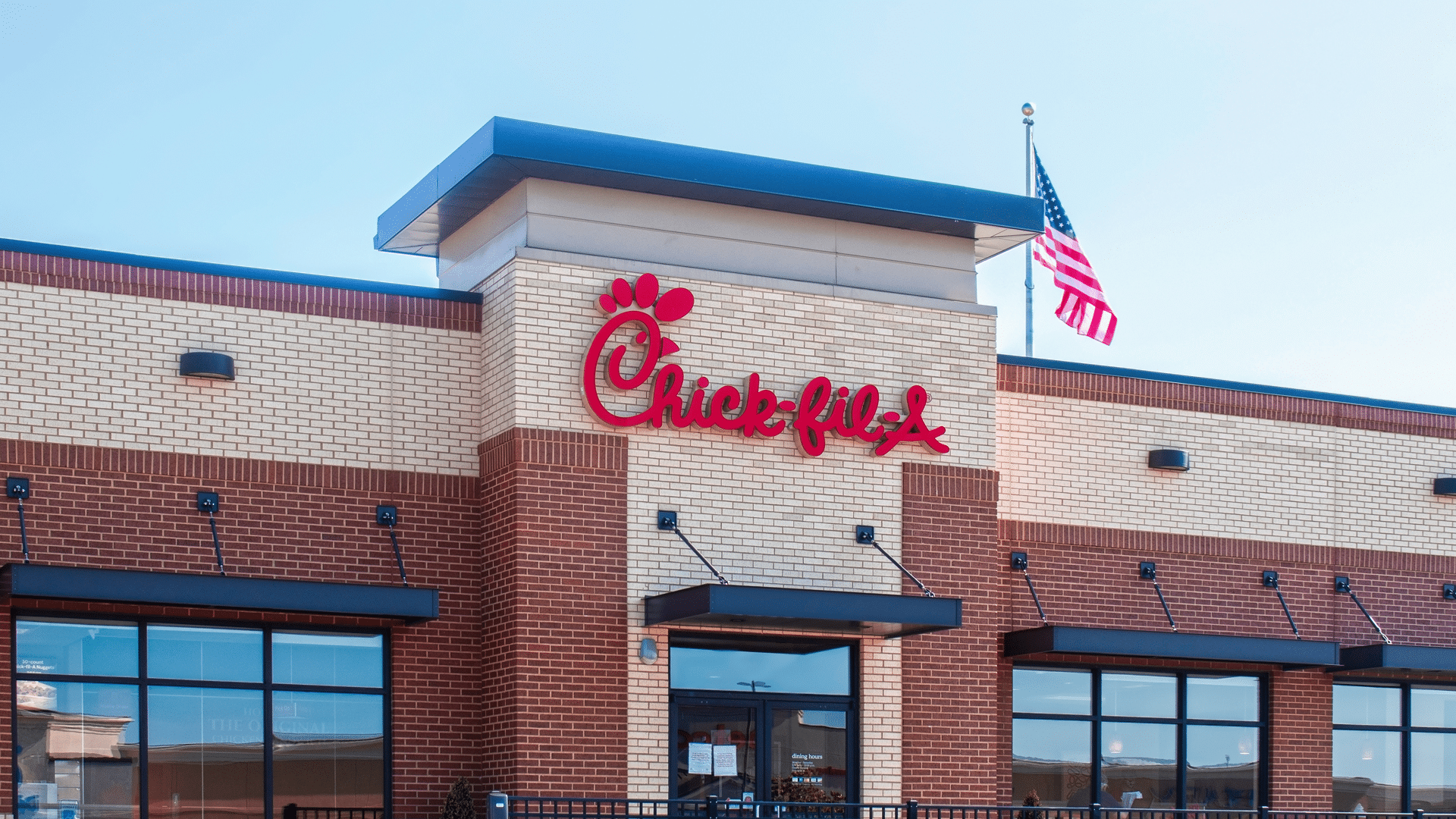In the ever-evolving world of food and dining, one company, Inspire Brands, has risen to the forefront, setting new standards and redefining the restaurant industry as we know it. Inspire Brands, the name resonates with innovation, diversity, and a passion for great food. But what exactly sets Inspire Brands apart as a restaurant group unlike any other?
In this blog post, we will embark on a culinary journey to explore the fascinating realm of Inspire Brands, uncovering the secrets behind their remarkable success, and dissecting the unique qualities that make them stand out in a crowded marketplace.
What Sets Inspire Brands Apart as a Restaurant Group Unlike Any Other?
In the ever-evolving restaurant industry landscape, one company stands out for its relentless innovation and rapid growth. Inspire Brands, known for owning popular chains like Dunkin’ and Arby’s, has become a trailblazer in food service, reshaping how we think about restaurant conglomerates. Inspire Brands has become a force to be reckoned with a commitment to adaptability, shared services, and a relentless focus on customer satisfaction.
The Origins of Inspire Brands
To truly appreciate the journey of Inspire Brands, we must delve into its origins. The story begins with Christian Charnaux and Paul Brown, who had previously worked together as executives at Hilton. When Brown reached out to Charnaux, the two were already familiar with each other, making their collaboration a natural progression. However, the conversation took an unexpected turn when Brown pitched a vision with no existing playbook—an undeniably intriguing concept.
Fast forward five years and Christian Charnaux now holds the position of Chief Growth Officer at Inspire Brands. His office, nestled in Sandy Springs, Georgia, offers a panoramic view of US-19/GA-400, providing a glimpse of bustling Atlanta traffic and, on clear days, distant mountains. The shelves in Charnaux’s office are adorned with various items, including a Jimmy John’s sign that may only be suitable for some audiences.
A Vision Beyond Imagination
When asked if he could have foreseen the current manifestation of Inspire Brands—a 1,000-person headquarters in Sandy Springs, complete with dedicated floors for each brand, beer taps, and ice cream in the standard room, and a 15,000-square-foot Innovation Center—Charnaux’s response is straightforward: “No.” The journey of Inspire Brands has been nothing short of astonishing.
To truly understand the logic behind Inspire’s meteoric rise, it’s essential to trace back to its inception. In February 2018, Arby’s Restaurant Group made headlines by closing a $2.9 billion deal to acquire Buffalo Wild Wings. This acquisition marked the birth of Inspire Brands as we know it today. However, the groundwork for Inspire’s ambitious journey had been laid long before.
The headline “Arby’s Buys Buffalo Wild Wings” triggered a wave of social media chatter, much of it perplexed. Questions like, “Can I order roast beef with wings now?” circulated, but Charnaux clarified that the goal was to create a family of brands, not a confusing mix of unrelated offerings. Inspire’s strategy became more evident when it acquired Sonic Drive-In for $2.3 billion in December 2019. By October of the following year, Inspire had added Jimmy John’s to its portfolio, transferring the business from one entity of Inspire-backer Roark Capital to another. (Roark had acquired a majority stake in 2016.)
However, the defining moment came when Inspire Brands secured an $11.3 billion deal for Dunkin’ and Baskin-Robbins, marking the most substantial restaurant acquisition since 3G Capital LP acquired Tim Hortons for $12.64 billion in August 2014. This landmark acquisition propelled Inspire Brands to unprecedented heights, making it the second-largest restaurant conglomerate in the United States, trailing only behind Yum! Brands, which owns popular chains like Taco Bell, KFC, Pizza Hut, and Habit Burger.
A Fragmented Restaurant Landscape
To grasp the genius behind Inspire’s strategy, one must understand the landscape of the restaurant industry. Unlike the hotel industry, Charnaux astutely observed that the restaurant business was highly fragmented. Following Marriott International’s acquisition of Starwood Hotels & Resorts Worldwide in the hospitality sector in 2015, the industry had “maybe six” significant global players. In contrast, the United States alone had about 20 restaurant players operating nationally.
Inspire Brands recognized an opportunity to apply lessons from the hospitality business, especially the digitalization and customer-centric approach that emerged a decade ago. The rise of online travel agencies (OTAs) and third-party delivery services further underscored the need for adaptation. Charnaux believes that the multi-brand approach that had worked so well in the hospitality industry could also be applied to the restaurant sector.
Moreover, Inspire Brands had a strategic advantage in the form of Roark Capital. Collaborating with Neal Aronson, founder and managing partner of Roark Capital, Brown, and Charnaux devised a framework to acquire major restaurant concepts and develop a shared-services structure that could benefit all brands collectively. This approach bore a resemblance to the way hotels operate. However, before embarking on the journey to multi-brand success, Inspire Brands recognized that scale was crucial. Charnaux says, “You can’t do all the fun stuff unless you have the shared scale.”
Navigating Digital Disruption and Adaptation
Before the COVID-19 pandemic, the restaurant industry faced digital disruption from various angles. The hospitality industry has experienced a similar challenge with the emergence of online booking sites. Charnaux and Brown had firsthand experience dealing with these industry shifts. While a global pandemic wasn’t on anyone’s whiteboard, Brown understood that change was inevitable. Companies equipped with scale and diverse brands that could cater to different customer needs, occasions, and times would be the ones to thrive.
Charnaux elaborates on the “tightly integrated scale” concept, emphasizing the importance of leveraging shared knowledge across brands. He believes that by doing so, a company can remain relevant to its customers, meet them where they want to be, communicate through the proper channels at the correct times, and tailor messages accordingly. Essentially, it’s about maximizing the potential of shared insights across all brands.
Franchised Business Model: A Key to Success
One of Inspire Brands’ key differentiators is its franchise-heavy business model. While many restaurant companies of its size tend to maintain a substantial corporate presence, Inspire is 93 percent franchised. This strategic decision aligns with their goal of innovation and adaptability. By granting franchisees more control and autonomy, they can experiment and introduce new ideas more rapidly, thus directly impacting their bottom line and the rate at which they embrace change.
Buffalo Wild Wings: A Showcase of Innovative Solutions
Buffalo Wild Wings is a prime illustration of Inspire Brands’ commitment to innovation. When the pandemic’s challenges loomed large, Buffalo Wild Wings, boasting a portfolio of over 1,200 sports bars, confronted a formidable obstacle due to social distancing measures and lockdowns.
In response, Inspire Brands swiftly harnessed its collective technological resources, encouraging Buffalo Wild Wings to adapt. The outcome was the amplification of their digital platform, a lifeline that played an indispensable role in the restaurant’s survival. They also introduced a “choice model,” enabling customers to place orders, make payments, and engage with staff through QR codes at their tables. This transformative innovation turned Buffalo Wild Wings into a tech-savvy establishment, allowing them to maintain their commitment to serving loyal patrons while adhering to health and safety protocols.
Global Expansion and Synergistic Brand Collaborations
Inspire Brands’ forward-looking vision extends well beyond U.S. borders. The company is actively pursuing international expansion, with Dunkin’ leading the way. Dunkin’s performance in global markets has been exceptional, as the brand continues gaining traction in diverse regions.
Another noteworthy facet of Inspire’s strategy involves leveraging the synergy within its diverse portfolio of brands. Strategically positioning different brands close to one another creates mutually beneficial collaborations that enhance the overall customer experience.
Exploring Non-Traditional Opportunities
The rising cost of real estate has led Inspire Brands to explore non-traditional growth opportunities. They aim to offer franchisees flexible options to efficiently maximize restaurant space use. This includes co-locating multiple brands in a single location, streamlining operations, and increasing overall efficiency. The goal is to make the most of the physical footprint of each restaurant while catering to diverse customer preferences.
Alliance Kitchen: A Game-Changing Innovation
Inspire Brands’ commitment to innovation extends to its operational strategies. One groundbreaking concept they’ve introduced is the “Alliance Kitchen.” This innovative approach combines the kitchens of different brands into one central hub. By doing so, they can significantly reduce labor costs, square footage requirements, equipment expenses, and energy consumption. The result is a highly efficient model that enables them to serve multiple brands from a single location.
The Future of Inspire Brands
The trajectory of Inspire Brands promises a sustained journey of growth and triumph. Their strategic roadmap involves attracting external investments to expand their franchise network. Christian Charnaux holds a steadfast conviction that there exists substantial untapped potential for growth within each of their brands, both on a domestic and international scale. Their distinctive capacity to co-locate brands, cross-promote, and foster innovation throughout their portfolio gives them a competitive advantage in the ever-evolving restaurant industry.
In summary, Inspire Brands transcends being merely a collection of restaurants; it stands as an influential force driving innovation and expansion. With its forward-looking strategies, unwavering commitment to customer satisfaction, and adaptability in response to shifting trends, Inspire Brands is reshaping the landscape of the restaurant industry. As they persist in expanding their presence and exploring novel avenues for growth, the ripple effect of Inspire Brands will leave an indelible mark on the culinary landscape for many years to come.
Unlock Your Restaurant’s Potential with SupplyCaddy
Our unwavering commitment to excellence, innovation, and customer satisfaction! And when it comes to ensuring your restaurant’s success, SupplyCaddy is your trusted partner. As a leading global manufacturer and supplier of top-notch packaging and disposables for the food service industry, SupplyCaddy stands out from the rest. Ready to take your restaurant to the next level? Reach out to SupplyCaddy today at [email protected] and experience the Inspire Brands difference firsthand.





















